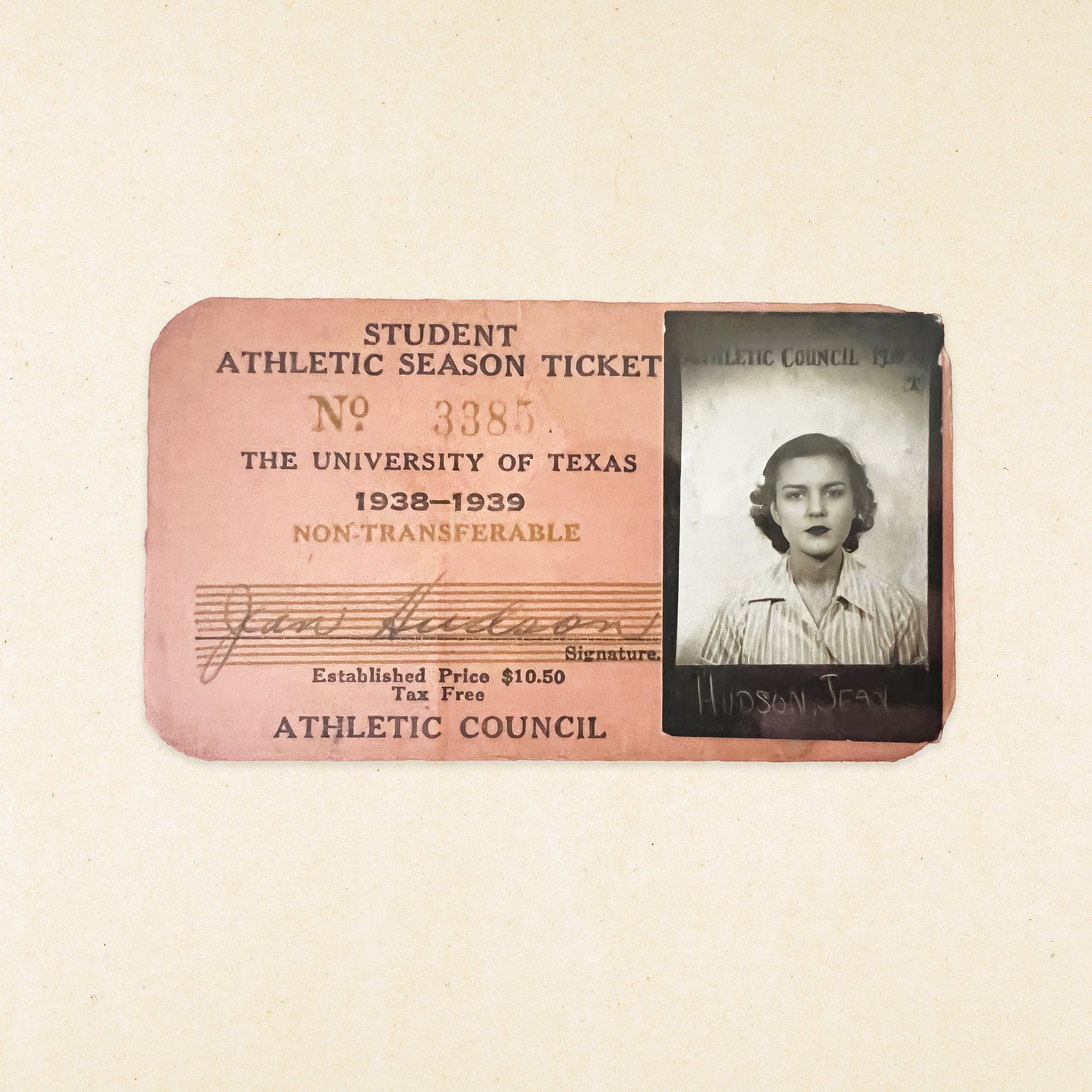The Way Back: All-Inclusive
This blanket tax ID card belonged to my great-grandmother Jean (Hudson) Caton.
My great-grandmother Jean Hudson Caton attended “The University”—that’s how she always referred to UT—in the late 1930s. She was a proud member of Pi Beta Phi sorority. The last time I saw her before she died in May 2019 at the age of 100, she tried to hold up the hook ’em hand sign, but her frail fingers couldn’t quite form the horns.
“Dean,” as her grandchildren and great-grandchildren called her, was anything but frail in life. Her son (my grandfather) once had to fly down to Guatemala to discharge her from the hospital after she broke her ankle trying to get into a boat. And she was a Texas Football fan to the end.
When I started at UT, only a few months after she died, my family and I compared my student ID to what we thought was her athletics ticket. After some research, I discovered that this identity card was, instead, proof of her “blanket tax” payment.
The “blanket tax,” a program started in 1916 to consolidate student fees and promote equity and accessibility, not only served as a student’s ticket to a variety of cultural and athletic events, but also supported student organizations including The Daily Texan, the Longhorn Band, and Student Government.
“We view the blanket tax as a cooperative plan, whereby the burden of activities will be equalized … and the different activities will be brought within the reach of every student in school,” reads a 1916 Daily Texan article advocating for the initiative.
A ticket to a Longhorn football game in 2023 could run you a cool $2,500—the highest resale price for the home game against Alabama last season. But in 1938, my great-grandmother only had to pay $10.50 to be entered into ticket drawings for home and away football games—which, even adjusted for inflation, only amounts to $229 in today’s currency.
Student ticketing has gone through several evolutions since then. Readers might remember the Longhorn All-Sports Package, which allowed students home game tickets to all athletic events based on availability but could be paired with a $70 season ticket that guaranteed a seat in Darrell K Royal-Texas Memorial Stadium.
In 2014, the LASP was replaced by the Big Ticket, which debuted at $175 with guaranteed stadium seating. But demand would soon surpass the student section’s capacity—most memorably at the 2019 LSU game with construction in the South End Zone limiting seats even further—and Texas Athletics needed a new way to ensure safety and comfort for fans.
Starting this school year, Big Ticket holders had to go online each week to claim one of a finite number of mobile-entry passes. The Big Ticket is up to $200 now, with a limited number of $100 Longhorn Foundation student memberships allowing early access to football ticket claims and priority seating for the Red River Rivalry game and any postseason games.
My brother, Hampton, is a sophomore at UT, still attending football games 85 years after Dean’s time on the Forty Acres. Our dad and both of our aunts (Dean’s granddaughters) are also Longhorns. If blood is thicker than water, we all bleed burnt orange.
